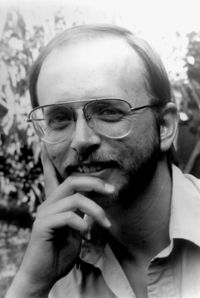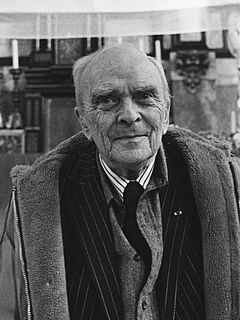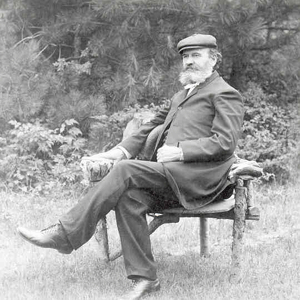A Quote by Ruth St. Denis
Remembering that man is indeed the microcosm, the universe in miniature, the Divine Dance of the future should be able to convey with its slightest gestures some significance of the universe.
Related Quotes
In magical thought the human body is the 'microcosm' (small representation) of the Earth, which is the 'macrocosm'. The Earth is also the microcosm of the Universe. In other words, we are pictures of the essence of the planet and thusly of the universe. As such, when we change ourselves, we change the Earth and the universe.
Do you see the slightest evidence anywhere in the universe that creation came to an end with the birth of man? Do you see the slightest evidence anywhere out there that man was the climax toward which creation had been straining from the beginning? ...Very far from it. The universe went on as before, the planet went on as before. Man's appearance caused no more stir than the appearance of jellyfish.
We are living in an inspiring and unimaginably large universe. Contemplating the immensity of our cosmos can make you feel very small and insignificant. But think about it. You have 37.2 trillion cells in your body. There is vastness outside you and vastness inside you. You are connected to this mystery, you are a microcosm of the universe, and every aspect of your life benefits from the universe's provision.
It'd be a shame to talk about the universe and not show some images of it, because we have some of the more stunning representations of our field relative to any of the sciences. But I don't use the imagery as a substitute for the insights and wisdom I can convey so that when you leave you say to yourself, "Wow, I'm a little more deeply connected to the universe, and I want to learn more."
...the scientific attitude implies what I call the postulate of objectivity-that is to say, the fundamental postulate that there is no plan, that there is no intention in the universe. Now, this is basically incompatible with virtually all the religious or metaphysical systems whatever, all of which try to show that there is some sort of harmony between man and the universe and that man is a product-predictable if not indispensable-of the evolution of the universe.
We are all connected to each other biologically, to the earth chemically and to the rest of the universe atomically. That's kinda cool! That makes me smile and I actually feel quite large at the end of that. It's not that we are better than the universe, we are part of the universe. We are in the universe and the universe is in us.
For myself, I like a universe that, includes much that is unknown and, at the same time, much that is knowable. A universe in which everything is known would be static and dull, as boring as the heaven of some weak-minded theologians. A universe that is unknowable is no fit place for a thinking being. The ideal universe for us is one very much like the universe we inhabit. And I would guess that this is not really much of a coincidence.






































